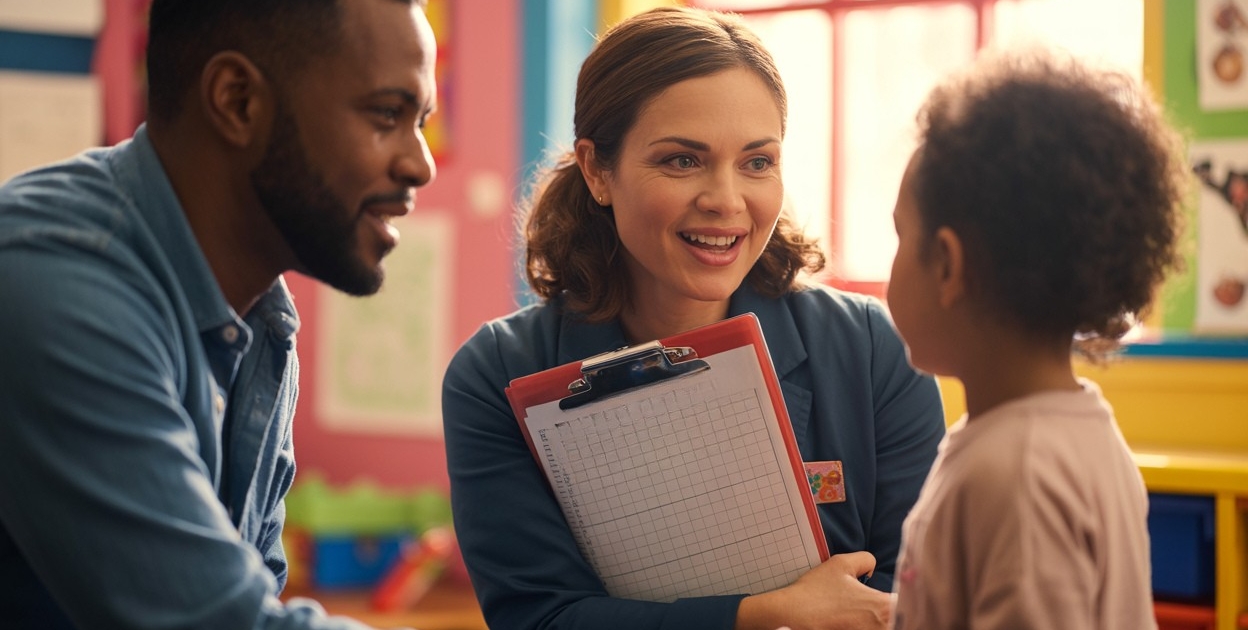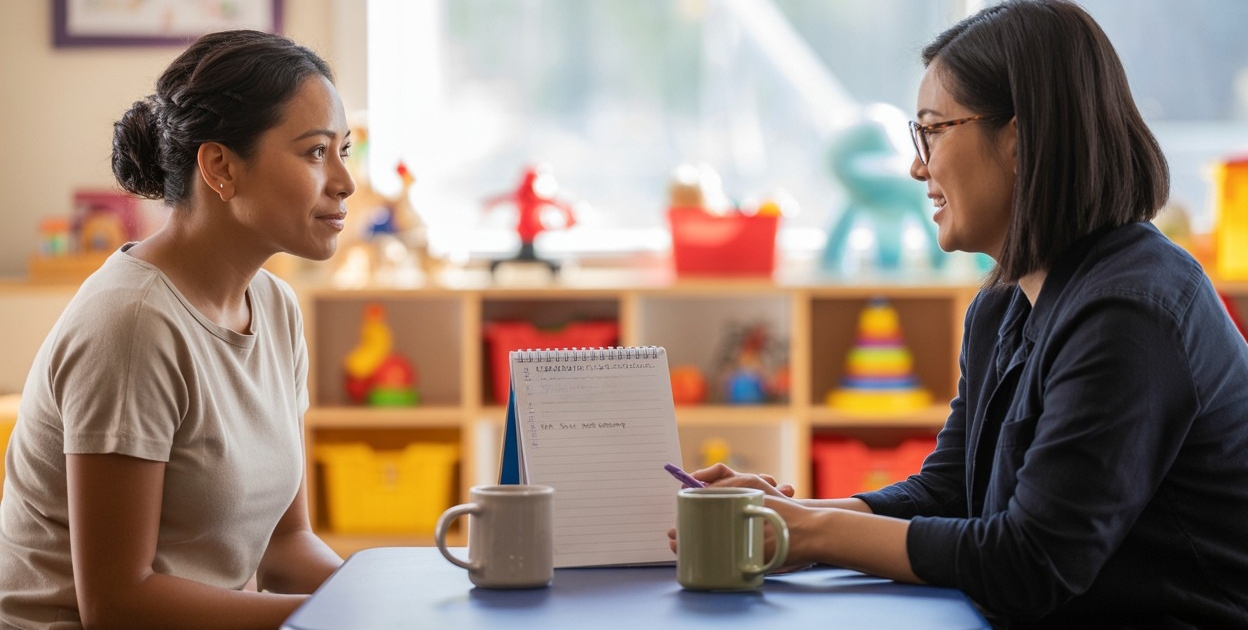Saying Goodbye Well: Three Ways to Communicate Meaningfully with Parents
How you say goodbye matters.
Greg Dixon, Director of Business Development
Thursday, June 5, 2025 – 3 min read
As the school year draws to a close, early childhood educators and childcare supervisors have a unique opportunity to leave a lasting impression. Whether it is a quick exchange at pick-up or a longer meeting, your words carry weight. Parents remember how they felt when they left your care, and your words, whether spoken or written, help anchor that transition.
1. The 5-Minute Pick-Up Chat
Using an attendance list, intentionally have a short conversation at pick-up with each parent. Short conversations can be powerful. Share one recent, specific observation that reflects growth. “Today, Malik invited another child to join his block tower, which was a big step for him.” Frame it around the child’s social, emotional, or cognitive development and use present tense.
2. The End-of-Year E-mail
This is a great space for a heartfelt, reflective message. Begin with gratitude. Highlight one or two memorable moments, using the child’s name and unique achievements. Share a short suggestion for summer learning that feels supportive, not prescriptive. If possible, attaching a picture of their child deeply engaged in an activity or learning can add warmth.
Here’s a template:
Subject: A Year of Growth – [Child’s Name]
Dear [Parent’s Name],
As we approach the end of the year, I want to take a moment to share how proud I am of [Child’s Name]. One moment that stands out was when [insert specific memory]. It showed how much [he/she] has grown in [insert developmental area].
[Child’s Name] has brought [describe positive traits: joy, curiosity, humour] to our classroom every day. This summer, you might enjoy [suggest one playful activity, such as exploring simple science experiments, reinforcing phonetic letter sounds, or storytelling to foster language skills].
Thank you for trusting us with your child. It’s been a joy watching [him/her] flourish.
Warm regards,
[Your Name]
3. The Intentional Parent-Educator Meeting
For families needing deeper connection or ongoing support, a longer conversation allows you to review goals, reflect on development, and co-create next steps.
Research underscores that specific, strength-based communication builds trust and improves outcomes. You are not just informing, you’re affirming.
Structure the meeting with intention:
- Begin with a strength: Highlight the child’s unique strengths and contributions to the classroom. Every child has several.
- Anchor in observation: Mention clear developmental milestones reached throughout the year. This could include social, emotional, or cognitive.
- Invite Dialogue: Ask open-ended questions like, “What have you noticed at home lately?” to promote active participation.
- Collaborate: Use “we” language. This reaffirms shared care and avoids placing the educator in a one-sided expert role.
- End with hope, not homework: Suggest enjoyable, easy-to-implement summer activities, such as teaching a lesson on measurement through baking or visits to a museum.
Research confirms that authentic, family-centred conversations improve long-term outcomes. The goal is not a report, it is a relationship. Close the year by affirming each child’s wholeness, and each family’s partnership.
As you conclude the year, your words can offer joy, clarity, and a sense of shared accomplishment. However brief or in-depth, nurture a positive transition into summer.








